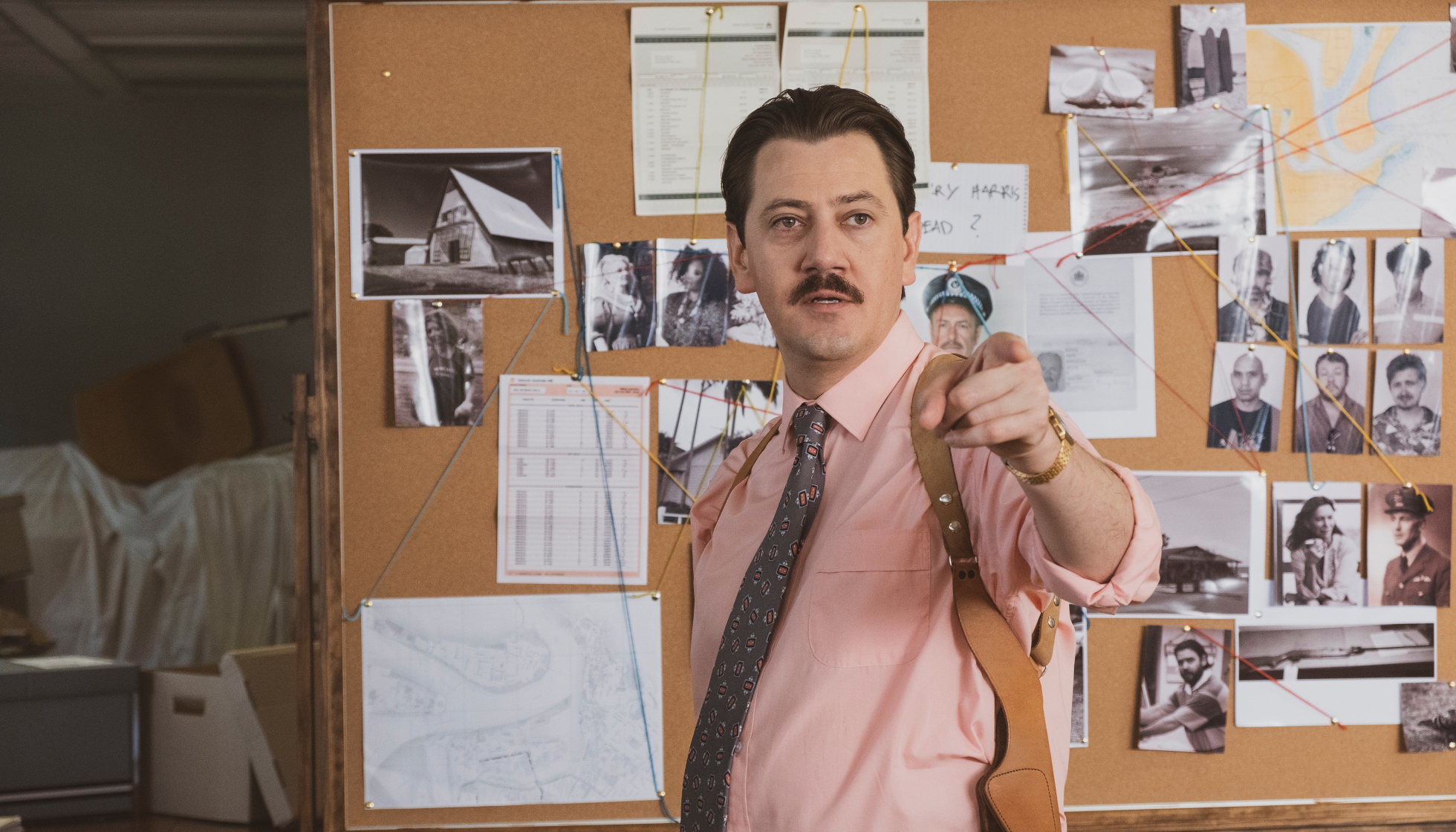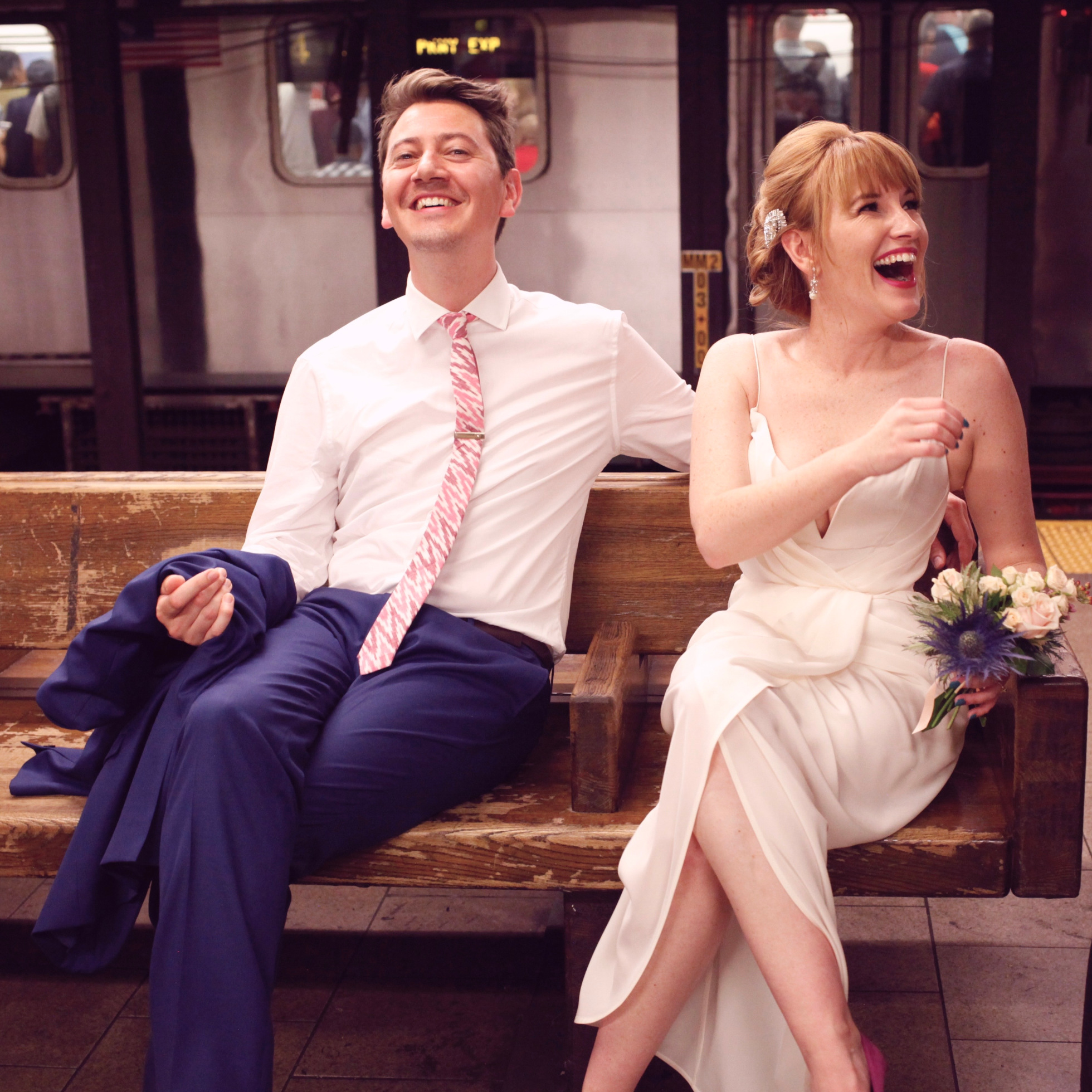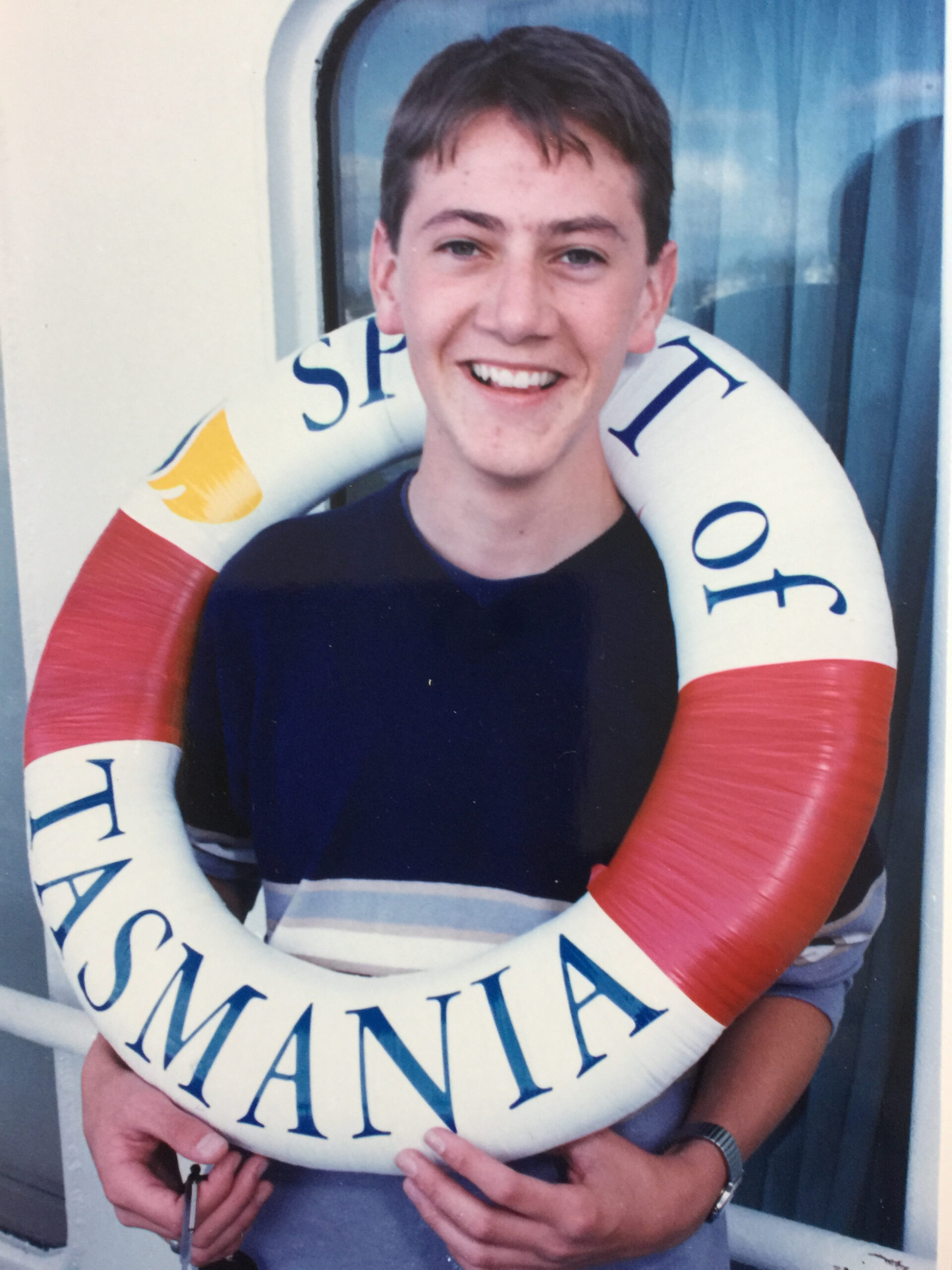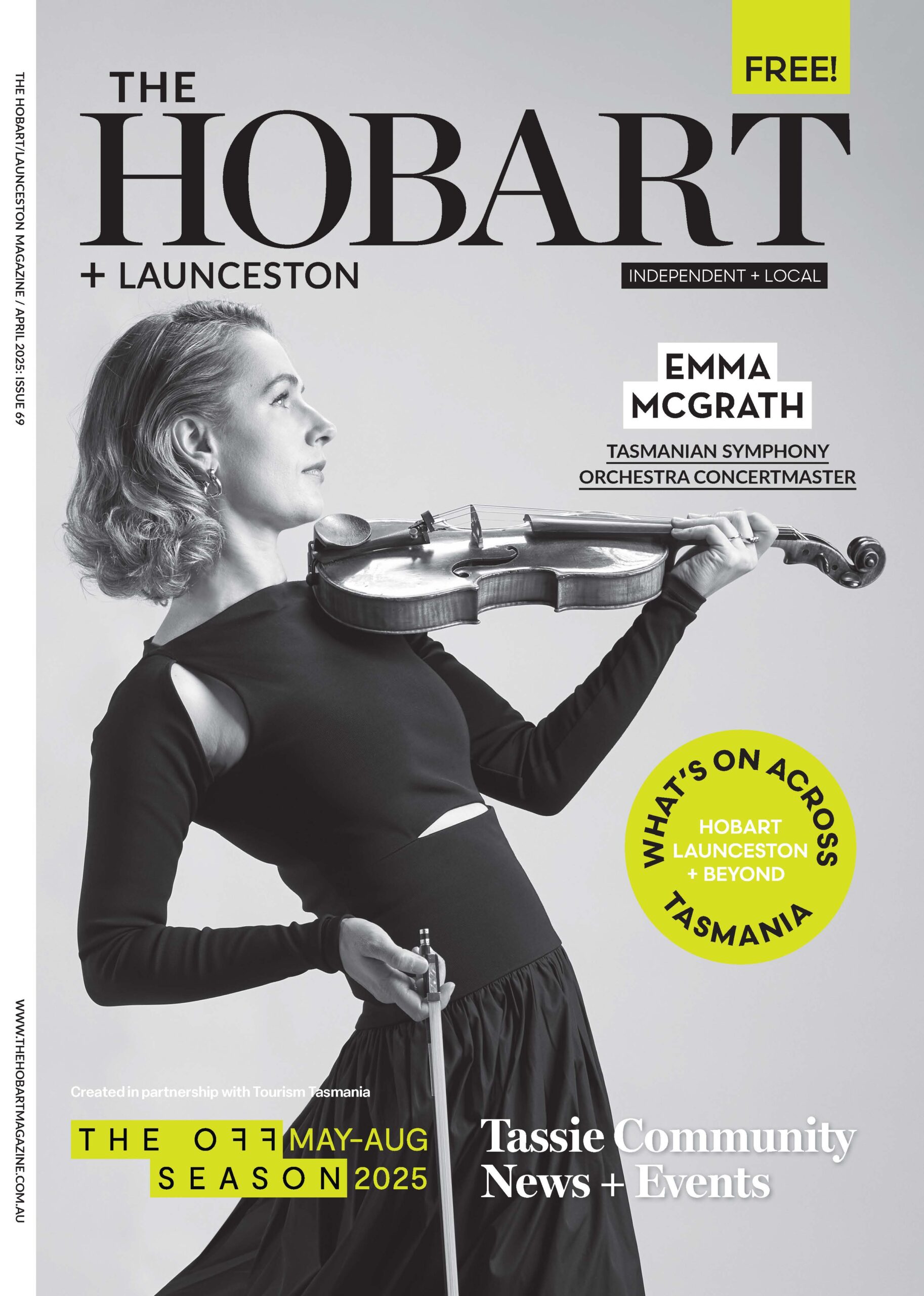Hamish Michael
by Stephanie Williams

After a childhood full of small town freedoms, Hamish Michael has crafted a career on the stage. From the Uni Revue to appearing in some of Australia’s most-loved dramas, he is now set to spread his wings even further.
S: You grew up in Latrobe, on the northwest coast. Did you enjoy small town living?
H: We moved down here from Melbourne when I was young, my dad worked on the Empress at the time, the ship before the Spirit of Tasmania. Tassie felt like growing up in your own personal bio-dome isolation. I was doing a paper round where I’d get up at 4:30am in the morning and my parents would just let me ride around the streets to the newsagency in Latrobe, to roll my own papers and deliver them.
S: What did you do post-high school?
H: Mum didn’t want me to go to university because she didn’t think I was a great student. My sister was an amazing student so I think the bar was set so high! After school I moved from Latrobe to Hobart and took a job with the Retirement Benefits Fund Board. In that first year I was living with a bunch of guys from school in Mount Nelson. We were paying $28.10 a week in rent each, I remember that very specifically! I moved out on my own the year after that and started making new friends through work and getting into theatre, like the Uni Revue. That led to doing one act plays at the Drama Festival and then I got a musical.
S: You’re into music as well, aren’t you?
H: Yeah. The director of the musical was doing a professional show at the start of 2000 and I got that role. It was strange because there were all these actual serious actors down here who went to Rosny, which had an actual arts feeder course. The Salamanca Arts Centre had a call out for emerging theatre artists, so myself and a bunch of people applied for different projects – mine was to try and get into drama school. I didn’t get into drama school, but I was successful with the grant and I got to work in Melbourne.
S: Did you ever go to drama school?
H: No, I tried. They wouldn’t let me!
S: So you went through the amateur ranks?
H: I never craved attention or anything, but I remember watching shows and thinking, ‘That’s something I think I’d really like to do,’ and I don’t know why. Being on the northwest coast of Tasmania, it just felt completely unattainable. I loved shows like You Can’t Do That On Television.
S: I loved that show.
H: I wanted to be like those kids. I met a guy, Andrew Casey, who’s still down here, he runs one of the best drama schools, React. He’d always done theatre and was in the Old Nick crowd so he got me into that too. Getting the arts grant led me to a director in Melbourne who I shadowed for a show – I was meant to just sit and watch the production being made. But we got along quite well and I became his assistant for the show.
I ended up meeting an agent in Melbourne. She took me on without any professional credits.
S: Was it hard in that first stage?
H: Yeah, I was literally learning on the job and still doing independent theatre. The idea at that stage of breaking into TV was daunting. My first thing was a Panadol commercial in 2002 or ‘03 and then I got a guest role on Stingers. The episode-of-the-week shows don’t really exist anymore. All these different actors would get opportunities every week to do a role on the show and that was really fun.
S: Did it feel surreal as Tassie boy on set?
H: It’s a badge of honor now because Tassie got cool. But at the time I was kind of ashamed. I was the country boy and because I wasn’t born here in Tassie, (I came down here when I was three and a half years old), I’m not from there either. I spent my entire formative years here from three to 20. The years I spent between high school and going back to Melbourne were such a concentrated, incredibly developmental period of time that I feel like Hobart’s more home than Devonport sometimes. I tried to hide it because people would go like, “Where did you train?”

S: On the mean streets of Latrobe!
H: Ha! And every now and then someone else didn’t train either would take me aside and be like, “That’s great. Good on you man. You made it in as well.” Like slipping through the system.
S: Do you think that could happen now?
H: Yeah, absolutely, maybe even moreso. Casting is so different now because everything is taped. It used to be that you had to go into the room, but now it’s all tapes. It means you can be from anywhere and still be in the running if you have access to the brief.
S: And you’ve built a business around that.
H: Yes. I started it in 2014. I used to hate doing self-tapes because I was self-critical – I’d rather go in and get feedback from the director. But every now and then there’d be the opportunity to go for a job in the States. I’d have to set up this whole thing in my kitchen, and it would take a whole afternoon. Then I had a bunch of friends start using my setup. So I set up a little place that did self tapes. I just opened one in Melbourne as well. It’s been a great thing to have when I’m not working and there’s been a lot of time not working in amongst that.
S: Is working as an actor a combination of hectic time and then retreat time. How does that play out in your day-to-day life?
H: It can be incredibly frustrating. You can only do so much professional training. You need to step away and have a life. But you need to also be resourced and have the income and be comfortable enough to feel like it’s okay to take a few weeks off. At the moment I haven’t worked in 18 months. I did a big job end of 2021 that went through until April 2022 – The Twelve on Foxtel which went really well.
I had done a show called Crownies that became Janet King. That was really good for my first big lead. But then it was so hard to break out of the mold – everyone thought I was conservative and the guy in a suit. So The Twelve and Frayed were the first big things where I managed to do something completely different.
S: Your wife Kate Mulvany is also a very accomplished actor and writer. How is a double actor household?H: We got married in 2015. We eloped in New York. It’s incredible being with someone who intrinsically understands the industry and what you have to go through. The hours you pull, especially when you’re doing theatre and rehearsing all day and then your brain’s wired and performing at night – I think you can only understand if you’re in an acting household. She’s a writer as well. A lot of her success early on has been from the incredible plays that she’s written. She writes a lot of television now and she got a big role on an Amazon show in the States. That has allowed us to travel and apply for green cards.

S: Are you hoping to work in the US as well?
H: I’d love to. I was on a companion visa so I could never work, which was frustrating, like standing outside the candy store with your face on the glass. We’ve got such good friends and family over there that it feels like a natural evolution. It’s certainly not to turn our back on what’s happening here in Australia though. Kate’s really plugged in, her work has been quite consistent over the past few years and mine has been a little bit patchier.
S: Where are you based in Australia?
H: We were in Sydney the last 13 years. But in Sydney I found myself seeking out the more Melbourne parts of Sydney – I’d never go to the beaches or any of that kind of stuff. We just bought a place in Melbourne. We just got our green cards so we’re coming and going from the states a lot now. We just wanted to have something that was ours, so we’re not paying rent in two places. Melbourne always made more sense to me. I like Sydney, but I still never knew the street names.

S: Does your agent feed you work or is it now your connections creating work?
H: It’s a combination. I’ve been with my current agent, Lisa for eight years and she’s amazing. You feel like you’re working with someone towards a certain goal. I’m a bit of a hard sell sometimes in terms of not fitting into a certain mold – it’s harder in America, especially as someone in their forties with no US credits to sell a straight white man!
S: There’s lots happening in the screen industry in Tassie right now. Have you been connected to that?
H: A few years ago I did a character arc on Rosehaven. And that was really fun. It’s gratifying to come back and work here, because I hadn’t. That role came up and it was really fun to just be this deadpan jerk.

S: The Twelve picked up a Logie this year. Is it weird to attend?
H: Yeah, it is. I’ve only ever done a few of them. I got nominated for the Graham Kennedy Award for best newcomer when I was 33, for Crownies. So that was very strange to go. I got this phone call from my agent congratulating me on my nomination. I’m like, “I’m not a newcomer. I’ve been doing it for 13 years!”
S: Tell us about your band life.
H: During filming of season two of Janet King, I needed something to take my mind off things. I wanted to find a specific thing for my guitar and I got into a YouTube video spiral of music effects. I’ve been playing in bands for years and had never really used any effects. Now it’s the opposite. I’m not playing as much, but I have so much gear now. I did a film called Heartworm and Art of Fighting did the music. And I was a huge fan. I played a musician in that who was a bit of a jerk. I had to record a song that I jerkishly sang at a party. So I went into the studio with Art of Fighting and did this track and became friends with those guys. And years later, one member, Ollie and I lived together for a number of years. We started doing gigs together and then his friend joined us as a drummer and we became a band for a little while. We even supported Paul Dempsey from Something For Kate on his national tour.

S: When you’re in Hobart, what do you like to do?
H: I catch up with a few friends who are here. I looked up today whether Rektango still happens. And I see it’s celebrating 22 years! I must’ve been there at the beginning. It was my favourite thing to do on a Friday afternoon because you’d just turn up, you’d have a mulled wine, it was cold and the band’s playing.

